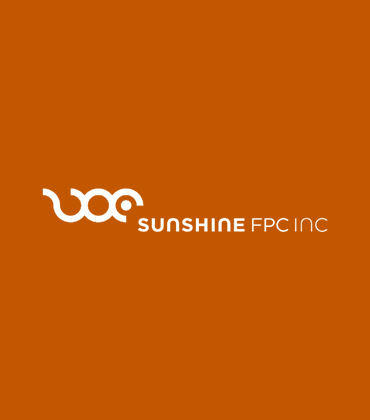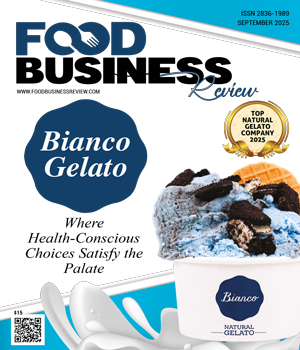Sustainability is a shared priority for both food brands and consumers, but the path forward for packaging isn’t always simple. Companies face increasing pressure to reduce polymer products, minimize waste and adopt greener materials, yet packaging remains the first line of defense, protecting food from oxygen, moisture and contaminants that impact safety and product integrity.
 The challenge lies in materials. High-performance solutions like multilayer laminates and foil-based films offer strong protection but are hard to recycle or compost. More sustainable options, such as mono-materials or compostable films, often fall short of cost requirements.
The challenge lies in materials. High-performance solutions like multilayer laminates and foil-based films offer strong protection but are hard to recycle or compost. More sustainable options, such as mono-materials or compostable films, often fall short of cost requirements.
It’s why even McKinsey reports suggest 60 to 70 percent of U.S. consumers still rank food safety above environmental impact when evaluating packaging.
Sunshine FPC is helping brands move past this either-or mindset. It addresses the packaging design challenge head-on, guiding manufacturers toward sustainable materials without compromising on what keeps food safe, fresh and compliant.
Its Modified Atmosphere Packaging (MAP) capabilities reflect this balance in practice. By precisely engineering oxygen and moisture transmission properties, Sunshine’s MAP structures extend shelf life by up to 35 percent. The result: reduced food spoilage, preserved product quality and improved efficiency across the supply chain, all while supporting ESG commitments.
“We don’t treat sustainability as a bolt-on feature. It has to be engineered into the structure, alongside performance and safety, so brands aren’t forced to compromise,” says James Chuang, President and CEO of Sunshine FPC.
Its compostable PLA and PHA films undergo identical rigorous testing as traditional materials, ensuring they support the protective requirements of MAP. Post-consumer recycled (PCR) content gets engineered to match sealing integrity as virgin resin, an essential factor in shelf-life preservation. This is backed by a robust quality system where Sunshine’s materials and processes align with FSMA, Prop 65, and BRC standards, all under an internal Quality Management System (QMS) embraced company-wide. This allows brands to lead on sustainability without risking operational performance or consumer experience.
Sunshine’s vertically integrated model makes that difference tangible. Most flexible packaging firms depend on outside suppliers, introducing risks to quality and timing. Sunshine controls every step, from raw materials to printing, lamination, and final converting. That end-to-end ownership removes the handoff errors that slow projects down or compromise consistency. With full in-house coordination, complex builds that require MAP barriers, security printing, tactile finishes, and sustainable substrates come together seamlessly in a single structure. And when regulations shift or seasonal timelines tighten, that control becomes critical, often determining whether a brand delivers on time or misses the moment entirely.
-
We don’t treat sustainability as a bolt-on feature. It has to be engineered into the structure, alongside performance and safety, so brands aren’t forced to compromise
The final touchpoint experience is precisely engineered. Laser scoring improves ease of opening, while micro-printing deters counterfeiting and adds a visible quality signal. Combined with features like reclosable zippers, box pouches, and matte-gloss finishes, packaging becomes both functional and brand-reinforcing. One national retailer saw the impact firsthand. After struggling to replicate its premium gravure finish with U.S.-based converters, the brand turned to Sunshine and received not only a match but an upgrade, thanks to its advanced flexo capabilities.
What makes this possible is the way Sunshine works. With full control over the process, the team collaborates closely with clients at every stage of development, turning packaging into a strategic tool. Whether it’s engineering reclosable pocket zips for emerging snack brands or fine-tuning gusset geometry for complex pouch formats, every decision is made with a clear view of the client’s broader goals, from launch timelines to shelf impact to cost efficiency.
 At Sunshine, engineers and operators bring technical expertise and real-time problem-solving experience to every challenge. Many have stayed with Sunshine for decades. That longevity means they know equipment and materials and understand how decisions ripple through production systems. Proactive questions start from day one: Can this seal tighter? Run cleaner? Load faster? Innovation drives from the ground up rather than retrofitting solutions after problems emerge. This institutional knowledge forms the backbone of Sunshine’s QMS culture, where continuous improvement is a shared mindset.
At Sunshine, engineers and operators bring technical expertise and real-time problem-solving experience to every challenge. Many have stayed with Sunshine for decades. That longevity means they know equipment and materials and understand how decisions ripple through production systems. Proactive questions start from day one: Can this seal tighter? Run cleaner? Load faster? Innovation drives from the ground up rather than retrofitting solutions after problems emerge. This institutional knowledge forms the backbone of Sunshine’s QMS culture, where continuous improvement is a shared mindset.
Over the past decade, Sunshine has earned numerous Best of Show honors from the Flexographic Technical Association, Miraclon Innovation Awards, Flexotech Awards in the UK and the Sempra Environmental Award. Recognition reflects sustained innovation, technical craftsmanship and successful customer collaboration across diverse market segments.
These achievements translate into client satisfaction, with customers frequently telling Sunshine, ‘We wish we had found you sooner.’ Sunshine’s goal is to ensure that customers never need to search again for another flexible packaging partner.
Thank you for Subscribing to Food Business Review Weekly Brief




